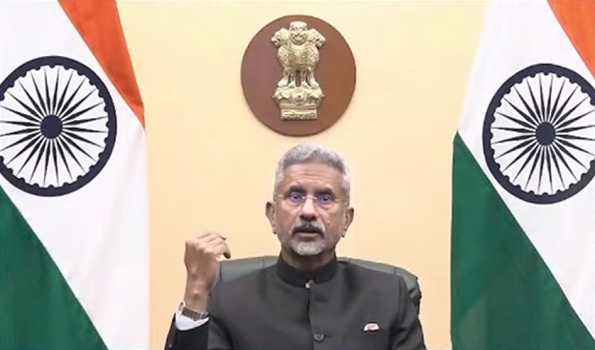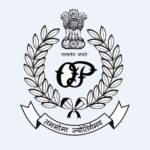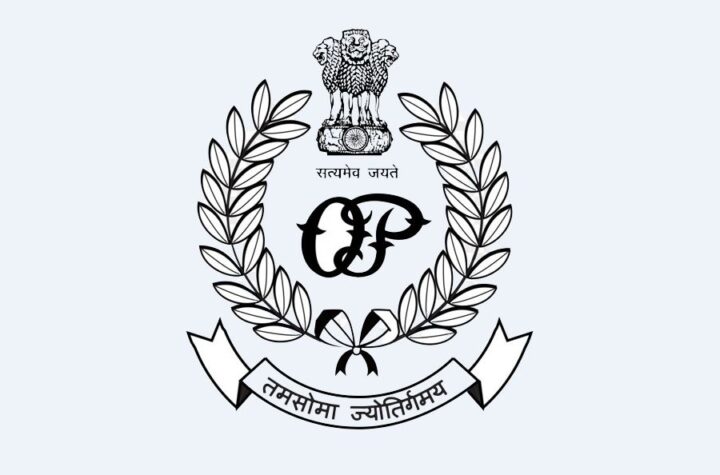New Delhi : The Quad has moved “very effectively and well” in the past year, External Affairs Minister S Jaishankar stressed on Tuesday, and said that the new grouping between India, Israel, the UAE and US, would be focusing on technology, including green tech, digital and start-ups.
During a discussion at the Global Technology Summit 2021, the EAM also said that the Covid pandemic has made the world revisit their economic logic as “reality came to bite”, and the world “woke up to the extent of exposure to foreign sources” – in an apparent reference to China.
He said the big takeaway from the Covid experience has been to have shorter supply chains, and the realization that domestic supply chains have been neglected.
Asked by C. Raja Mohan, Director at ISAS, National University of Singapore, whether the Quad was an aspirational grouping between India, the US, Australia and Japan, or if it was real, the EAM said:
“Last year has shown it is very much for real. I think it has moved very, very effectively, and moved well, precisely because it is a very contemporary arrangement… It is loose, it’s a new way of working, not just for us, even for the other three Quad partners; they too were used to a more cumbersome way of working, and if you see the outcomes, these are very practical subjects, whether on vaccines, students mobility, looking at start-ups.. We’ve taken a very sensible view of problems of the landscape and how do we find a practical solution.”
On the Quad countries’ interdependence with China, with regard to trade, EAM Jaishankar said: “Decoupling is a fashionable word. Anyone with serious business experience would challenge it. Decoupling is much easier said than done. What you are going to see is hedging and de-risking… multiple supply chains, shorter supply chains, and more transparent options.
“Much of it will remain the same, but the critical ones will change, but it will not happen overnight, it will not be linear, and when the smoke clears, you will see a different set of networks to what was there before.”
On the activities of the new grouping of India, the US, Israel and the UAE, he said “that some part of it will be tech focused, whether in green tech, or digital, or start-ups, as in these areas all four have great strengths.”
He said that countries in smaller groups are discussing the need for smaller resilient supply chains.
Jaishankar said the big debate about globalization is whether globalization should be allowed to proceed agnostic of everything else. “The great gurus pretend that everybody is the same, but reality has come to bite”, due to Covid, bringing to the fore “national competition, and national reality”.
“The orthodox international relations with national relations has come into conflict with the mantras of globalization,” he said, adding that due to a set of actions, reaction set in, and today we are confronting a different world politically.
“There was revisiting of economic logic, and due to Covid we woke up to the extent of our exposure.. Should any country be risking for having such a large exposure to foreign sources? The big takeaway from Covid is to have shorter supply chains, I feel we have neglected domestic supply chains,” he added, in remarks apparently targeting China, which is a major centre in the global value chains for major industries such as aviation, pharma, medical equipment, etc. which got disrupted due to Covid.
With regard to the health sector, he said that due to “years of following a certain economic logic” India was unprepared when it was hit by Covid. “And now how we have progressed is incredible, we see ourselves politically in sharper national terms”.
On PM Narendra Modi speaking about global norms for technology such as social media and cryptocurrencies so that they are used to empower democracy and not undermine it, the EAM said: “A point he made forcefully. Technology today is a critical tool to deliver on democratic governance, and it is important not to be cynical of democracy or governance.”
“Technology is an effective driver of good governance… In India, we are not just proud of democracy but of the processes of technology, and many of them have technology as a backbone to them. Every tech can be used or misused; in democracy there are more chances for it to be well used. We see them as an asset to democracy, but are aware there is a potential for misuse,”, and quoted “eternal vigilance being a price of freedom”.
On India’s tech diaspora, and Indian engineers and scientific diaspora shaping the global tech scene, he said that there is a growing demand for technology talent in the world, and on the need to put technology at the centre of growth.
“With the passage of time, the importance of the global marketplace has grown,” he said adding that India’s position is unique – as a “major stakeholder in the global workplace”.
“And the foreign policy of such a country should reflect that. The domestic policies should also reflect that. There is greater emphasis on human development, on skilling, on education, on startups…. We are trying from bottom up to enhance and improve the quality of our human resources, so that in the global market place and workplace we become a more effective player,” he said, adding that this is also reflected in the changed priorities with the government making it more easier to issue passports.
The government is also working on protection measures for Indian workers abroad. “We want legal movement of our people, they should not be left vulnerable,” the EAM said.
“We look at the world as a workplace and our policies should serve that. A large part of what we have done is to promote basic strengths at home and to ensure that these become very effective instruments of our foreign policy, and global influence, a world view if you would,” he said, adding that it was with this in mind that the government started the Global Tech Summit.
Earlier, in his remarks, welcoming UK PM Boris Johnson to deliver the opening remarks, the EAM said that the summit is the outcome of a productive partnership between the Ministry of External Affairs and Carnegie.
“In human history, technology is a double edged sword, it has opened up new vistas of progress and new threats. The aim is to find a new balance,” he said.
He said that in a world that is globalized and tech-driven, mastery of key domains is a symbol of mastery.
“In society the implications of technology are significant and transformational. It is a key governance tool and communications medium,” he said.
Welcoming PM Johnson, he said that the UK PM has brought new energy to the India-UK partnership, and the 2030 Roadmap in the bilateral strategic relations.











More Stories
LS elections: 4th phase polling records 63 pc turnout
‘Still poor country’: India going to become third largest economy in world
Viksit Bharat, Viksit Odisha: PM Appeals to State People to Vote for BJP